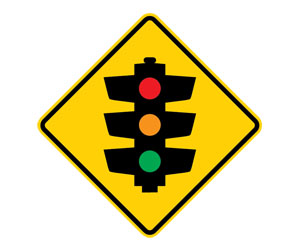BY RON BUKLEY
The Loxahatchee Groves Town Council agreed Tuesday to proceed with plans to put in a traffic light at Okeechobee Blvd. and D Road. The goal is to allow gaps in traffic so drivers can enter Okeechobee with a higher degree of safety.
The council also approved $131,000 to pave segments of North Road that were not included in the Loxahatchee Groves Water Control District’s paving project currently underway.
Regarding the traffic light, Councilman Ron Jarriel said he had received letters from Palm Beach County Engineer George Webb indicating that the light is warranted and could be piggybacked off the county’s standing contract, but the town would be responsible for design, construction and inspections.
“Once it is done, the county will take over maintenance,” Jarriel said. “If it blows down, the county will replace it. Maintenance alone year after year is very costly.”
Jarriel asked that the council do whatever it takes to move forward. “Even if the town has to pay, we can ask the county to refund us,” he said.
Councilman Tom Goltzené congratulated Jarriel on the progress he had made, but objected to the town paying for the light, even if there was the possibility of being refunded.
“It’s absurd that we should try to do this when we pay for it,” Goltzené said, adding that he was concerned that property owners at the intersection would see it as an opportunity for commercial development.
Jarriel pointed out that unlike Okeechobee’s intersection with Folsom Road, where commercial development is planned, D Road is not considered a collecting road.
“We need some type of break on Okeechobee so people can get on the road without being killed,” he said, asking that the council at least pursue hiring a consulting engineer to get the permitting process started.
Councilman Jim Rockett said he favored the project. “I don’t want to hold up what we’re doing,” he said. “I’m going to move forward, and if we have to appropriate money to do it, I will… We agreed before that a traffic light on Okeechobee was a top priority.”
Councilman Ryan Liang also favored moving forward. “It is important enough for the town that we should move forward,” he said. “The county knows it will have to put one in eventually.”
While Mayor Dave Browning said that a traffic light would eventually be necessary, he did not believe there was an immediate need.
“It will be important in the future to get the light to trip the traffic,” Browning said, adding that he was surprised that county engineers approved the light. “For a long time, the county said it was not warranted.”
Rockett made a motion to move ahead with planning and design, which was seconded by Liang. Goltzené asked that they limit spending, and Rockett proposed authorizing up to $100,000.
Town Attorney Michael Cirullo said the overall cost would probably be about $300,000, but the design would only be about $30,000.
The motion carried 3-2, with Goltzené and Browning opposed.
In other business, council members reviewed a draft ordinance to control dumping of used animal bedding in town.
Town Manager Mark Kutney said several changes had been made to the existing ordinance, including changing the annual permit fee from $500 to $1,000 for the hauler. If they have been cited for illegal dumping, the fee would be $2,000.
Council members also discussed whether requiring a 100-foot setback for dumping loads might be too onerous, as well as whether to require that dumping be allowed only on property that is designated as bona fide agricultural.
Goltzené asked that a section requiring that a property owner demonstrate that he has bona fide agricultural use be changed to use the county’s description of agricultural land. “Rather than set a new standard, I would prefer to use that standard,” he said.
Rockett asked whether a resident who did not have a bona fide agricultural designation for his property would be in violation if he wanted to have a truckload of manure dumped on his property for landscaping or cultivation.
Rockett also asked about a requirement that manure be dumped 100 feet away from the property line. “That does not address where it will be put after it is dumped,” he said.
Browning said the goal is to restrict the dumping, not the spreading. He suggested that the dumping setback be changed from 100 feet to 50 feet.
Goltzené said the 100-foot setback was also an issue for him, adding that he was concerned about over-regulating. He suggested an agricultural exemption for one or two truckloads for property owners who want it for landscaping or cover.
During public comment, resident Virginia Standish complimented the town and the Palm Beach County Sheriff’s Office for what they had done to resolve the excessive dumping and stockpiling of used horse bedding, but she pointed out that the onus now is primarily on the hauler. Standish expressed concern that some property owners would still use their property as a collection or composting site for bedding.
Resident Nina Corning said her concern was not so much about restricting agricultural use as overly restricting property owners with 10 or 20 acres with no agricultural exemption who need the bedding for gardening and cover.
Loxahatchee Groves Water Control District Supervisor John Ryan said he thought haulers should have permits from both Wellington and Loxahatchee Groves in order to dump. He said he felt that the town manager should be empowered to determine whether a property owner is using the bedding for legitimate purposes.
Council members also discussed whether a $1,000 permit fee was excessive, and Councilman Ron Jarriel said he felt that $1,000 was not a great amount for a hauler who stood to profit from hauling the bedding.
“It doesn’t take that many loads to make $1,000 hauling manure here instead of the composting center at 20-Mile Bend,” he said.
Cirullo said he would make the changes discussed and bring a revised ordinance back to the next meeting.








